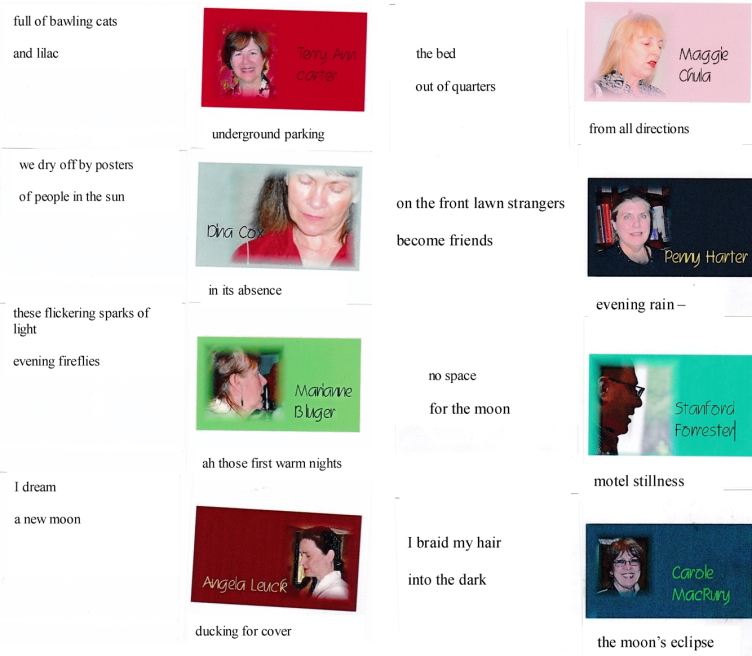Thousand Leaves, Karuta Haiku Canada, a card game based on the traditional Japanese Karuta tanka game, that I put together in 2006. (Photo: the start of a poem by Marianne Bluger, and the ending of a poem by someone else…)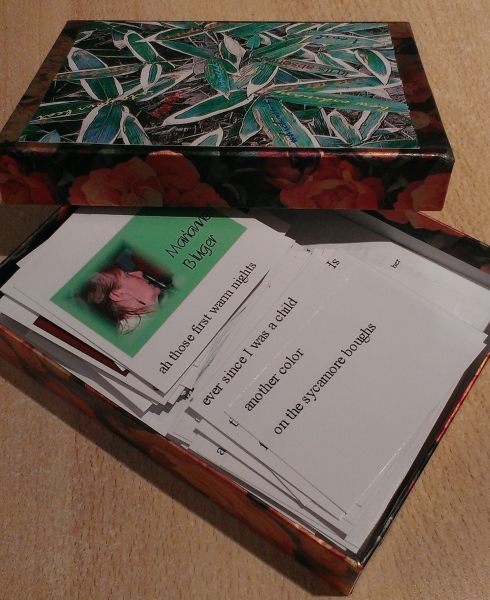
Karuta is simply the Japanese word for ‘cards’, and there are many karuta games, especially for children, that are meant to teach letters, memory, listening skills and reflexes.
Today, the competitive literary form of karuta, Ogura Hyukunin Isshu, based on one hundred famous poems, is played by a wide range of people in Japan. Although the game itself is simple, playing at a competitive level requires a high-level of skills such as agility and memory. It is recognized as a kind of sport in Japan.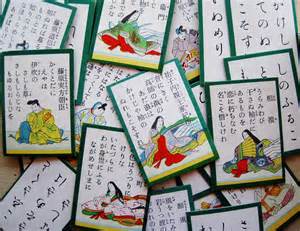
Tradition means that the same poems are always used: Good karuta players memorize all 100 tanka poems and the layout of the cards at the start of the match. Non-memorizers have to depend on luck to figure out whether they can find the correct poem-ending card.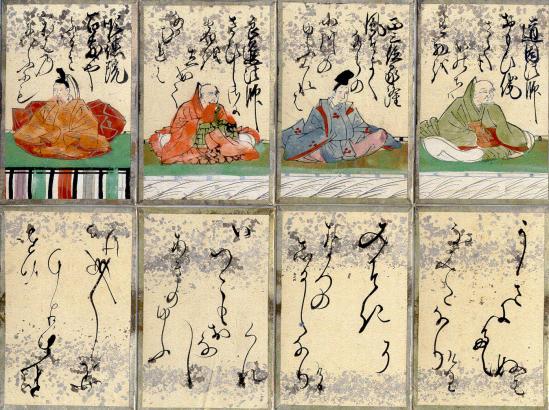
A player says the first line of a tanka and the first person to match the rest of the poem wins that card. Since many of the poems start with the same sound, though you may have responded most quickly, you may answer with the wrong poem. For example, there are 3 cards starting with Chi which are “Chihayafuru”, “Chigirikina” and “Chigiriokishi”, so a player must react as soon as he/she hears the beginning decisive part of the poem. Sort of like pushing the bell quickly or too quickly in Jeopardy.
There are other versions in Japan, including one in which players leap from card to card on a giant floor mat, something like our Twister. I have an English version of a karuta game based on the Tale of Genji, the first novel ever, written by the noblewoman and lady-in-waiting in the Heian court, but this is not the traditional game.
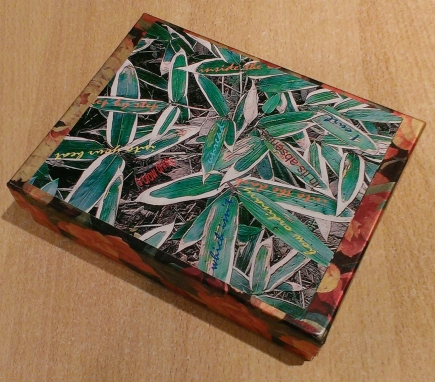 The one I came up with usually has a photo of a Haiku Canada poet, (but sometimes just the name) with the first line of one of their poems, haiku or tanka. The other ‘half’ card has the rest of the poem. It’s up to us to make the rules. Simple matching, calling out or even adding points for making new poems.
The one I came up with usually has a photo of a Haiku Canada poet, (but sometimes just the name) with the first line of one of their poems, haiku or tanka. The other ‘half’ card has the rest of the poem. It’s up to us to make the rules. Simple matching, calling out or even adding points for making new poems.
We can play traditionally, laying out the non-picture cards so that they can all be seen, trying to memorize where they are.
But since we do not have a canon of famous poems yet in Canada, we can match as best we can, until the poems are checked against a master sheet.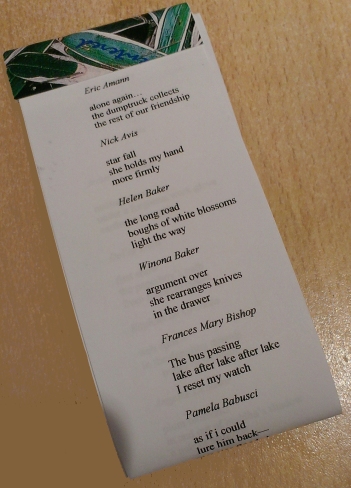 In the version played with my cards in Plattsburgh, we gave points for the correct poems when created, but also points when a new good poem was created. George Swede won a spiffy hat, as I remember it.
In the version played with my cards in Plattsburgh, we gave points for the correct poems when created, but also points when a new good poem was created. George Swede won a spiffy hat, as I remember it.
For your first game of Haiku Canada Karuta, try to match these eight poets’ first lines with their endings… (answers at the end of the post)
ah those first warm nights/ full of bawling cats/ and lilac
underground parking/ no space/ for the moon
from all directions/ these flickering sparks of light/ evening fireflies
in its absence/ I dream/ a new moon
evening rain ―/ I braid my hair/ into the dark
ducking for cover/ we dry off by posters/ of people in the sun
the moon’s eclipse/ on the front lawn/ strangers become friends
motel stillness ― / the bed/ out of quarters
I think I’ve made this too easy… but you get the idea of Karuta. One time we played this, it was in a room of about thirty poets. I simply distributed all the hundred poem parts, and we all ran around switching, matching and trading pieces. You’d never have thought this was a group of poets who are very passionate about Japanese-form poetry.
Perhaps that is a defining description of such poets: they take poetry, not themselves, seriously.

